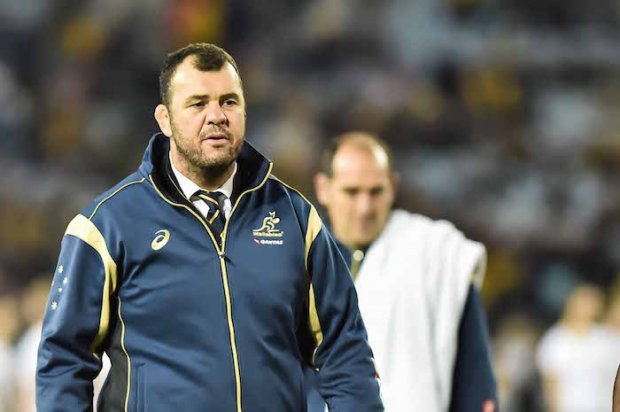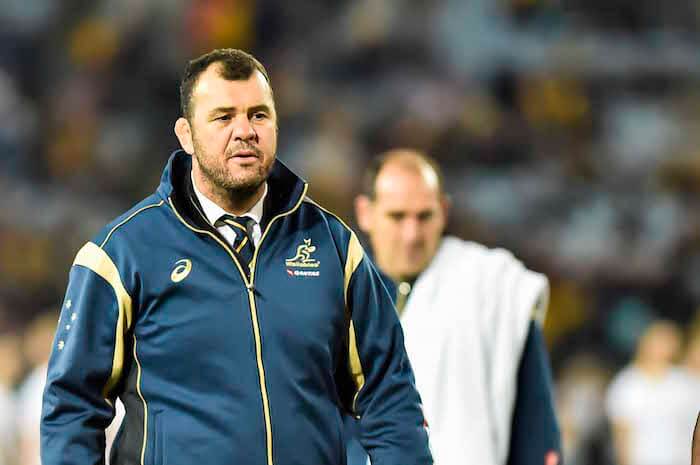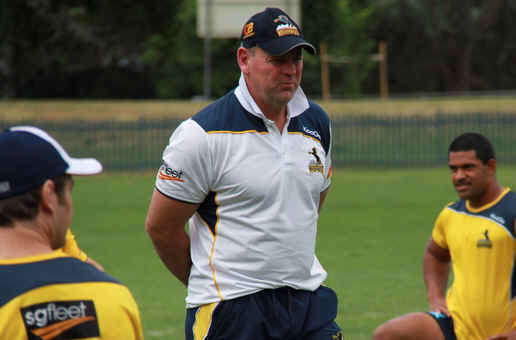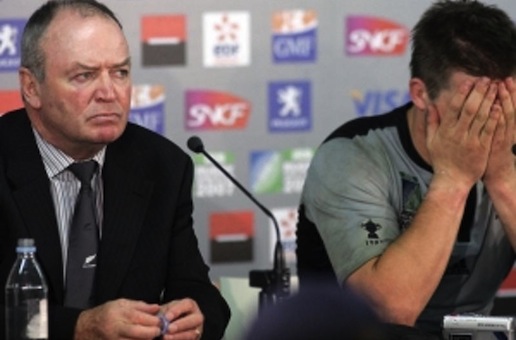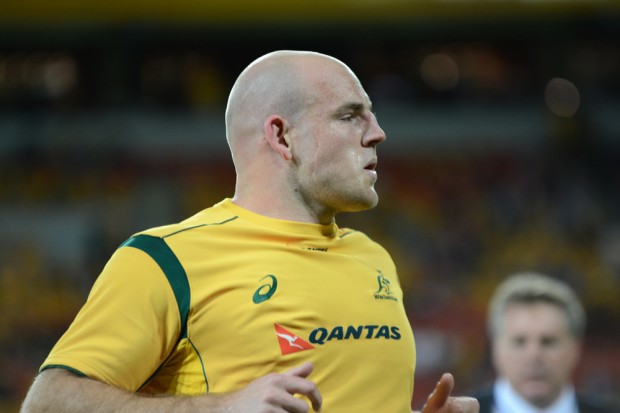Leading into this years Rugby World Cup, we thought it would be interesting to take a look at the man leading the Wallabies and compare him to those who have won the RWC before him.
Nobody doubted that Cheika was the man for the job when he took up the position just under 12 months ago, but a quick profile and comparison suggests there may be more to the appointment than immediately meets the eye.
The current coach – Michael Cheika
As a player, he was the stalwart number 8 surrounded by star studded Randwick line-ups between 1985-1999 that included the likes of Campo, Kearnsy, Simon Poidevin, Tony Daly, Ewen McKenzie, Eddie Jones, David Knox, George Gregan, Owen Finegan, Chris Latham and many more. He played 286 games for the club and won 7 premierships, as well as having stints overseas in Italy and France as both a player and coach where he picked up both languages. Following the end of his playing career, he coached Randwick (2001-04) to a premiership (04) before moving to Leinster (05-10) where he most notably won the Heineken Cup in 2009 and a Magners League (08) trophy. He also coached the Tahs to the premiership in 2014. Cheika is also a successful businessman, having worked with Collette Dinnigan before setting up his own company, Live fashion. Dinnigan described him as the guy that was tough in negotiations but would warmly welcome international guests with either French, Italian or Arabic as was required.
As a coach, he is probably known for his ability to build culture, lead and manage players and prides his teams on their physical and passionate approach – the latter of which, he himself is not shy of displaying. He’s also been known to ‘have the hard conversations’. At Leinster, he made Brian O’Driscoll make himself available for all matches (he’d previously taken breaks from some games), ensuring that even the great players are not bigger than the team. At theTahs, he has brought in a new culture, disposed of the old style and built a new style of physical, running rugby that has yielded results for the previously perennial underachievers. At Stade Francais, he didn’t really have the same success, although this is the only club where Cheika didn’t deliver some silverware.
Previous RWC winning coaches
By way of comparison to Cheika and hoping to understand whether history could be a guide to the future success, we have researched the biographies of a number of RWC winning coaches from the professional era.
’99 Rod Macqueen
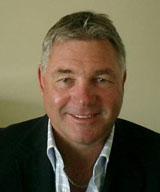
Away from Rugby, Macqueen built and led a successful multi-million dollar merchandising business alongside his playing and coaching. Many of his principles for business found their way into his coaching style, where he led the Waratahs to an undefeated 1991 season which included a huge win over Wales, and tasted success as he took the Brumbies into professionalism and the 1997 final in only their second year. He also helped set up the province for successful campaigns in the early 2000s (under Eddie Jones/David Nucifora). As Wallabies coach, he selected John Eales as the skipper, brought in a ‘leaguie’ in John Muggleton to transform the defence and established ‘Camp Wallaby’ in Caloundra and established a distinctive Wallaby culture. Anyone in this site should know the rest – you name it, they won it – under Macqueen the Wallabies had a win ratio of 79%, were RWC champions, Bledisloe and Tri nations champions and won the 2001 Lions tour.
’03 Clive Woodward

Sir Clive’ also had a successful business career alongside his coaching, establishing and running an IT leasing business. Notoriously fastidious and focused on the ‘one percenters’, he was always looking for ways to improve the English team and focused on having very high standards that would continually be raised. This included arriving 10 minutes early for meetings, wearing suits, only using mobile phones in their own rooms and touring with huge numbers of support staff that would look after all every detail. His mantra was that the team had to act like champions before they could be champions. He also focused on ‘teachability’ of players, or their ability to continually learn and grow through continual feedback, as well as focusing on their ability to visualise and perform under pressure – very important for those key moments. His win ratio as England’s coach was 71% from 1997 until 2004 (excluding British and Irish Lions) and a lot of the practices he put in place have become commonplace, despite being at the forefront of the Rugby world at the time.
’07 Jake White
A former school teacher who rose to prominence through the schools system and U19 and U21s, where he coached the U21 Springboks to the U21 World Cup in 2002. As Springboks coach, his first major and quite controversial decision was to appoint Jon Smit as Captain. The lead in was also included the controversial decision to rest key players (up to 20 in one Wallaby test) given his sole focus on the RWC later that year as well as the recruitment of ‘consultant’ Eddie Jones into the Springbok coaching ranks. As a coach he took the Springboks from 6th (2004) to 1st (2007) in the world rankings including winning the 2007 RWC and the 2004 Tri Nations with a 67% win ratio.
’11 Graham Henry
Another school teacher/headmaster that eventually become a full time coach when professionalism arrived in 1996. He coached the Blues to the Super 12 title in 1996 and 1997 (they were good once upon a time…) and the final in 1998. After being overlooked for the All Blacks job, he took the Welsh job and delivered a win ratio of 59%. He eventually got the ABs job in 2003 and rebuilt the culture around the mantra “better people make better All Blacks”. In 2006, he appointed a very young openside by the name of Richie McCaw to the captaincy, lost the 2007 RWC (but stuck with McCaw), established the resting policy prior to RWCs. He attained eventual success in the 2011 RWC, was the IRB coach of the year five times and had a win ratio of 85% (6% lower than Steve Hansens 91% which is scary).
So what does this recap tell us?
All had good players at their disposal, no question of that, but from the above bio’s, I couldn’t help but notice a few similarities in background and approach that have ultimately led to a winning formula within these teams:
Innovators, entrepreneurs or teachers
Like Cheika, both Macqueen and Woodward have strong backgrounds in entrepreneurship and business. Being business minded, the latter were able to lead the pack out of amateurism and into the professional era with ‘out of the box’ thinking that hadn’t been identified prior to their tenure. Cheika certainly has this ‘out of the box’ approach.
Prolonged success
Every single one of the coaches tasted success prior to the big one. In cricket terms, they had the runs on the board. There is no surprise to this, as without this success, they wouldn’t have got to where they were. But these coaches have all displayed more than that – success over a prolonged period. This can’t be put down to getting lucky with a group of players.
Selected a strong, statesman like leader
Macqueen, White and Henry all appointed strong, statesmen like leaders. Hindsight is a wonderful thing that can immortalise success, but looking at the leaders of those teams, Eales, Smit and McCaw and you cannot dispute that the coach got it right on each occasion. Is Moore that statesman like leader?
Culture is paramount
In every single team, the culture was paramount and team harmony appeared to be present. Macqueen built pride in the jersey and brought in camp wallaby, Henry based his culture on “better people make better All Blacks”. It was interesting to hear how the RWC squad found out they were in – each received a call from one of the members of the 1999 RWC winning Wallabies. Kearns, Foley, Horan, Little, Gregan – you can imagine how the players and ex-players would have enjoyed that – Kearnsy said on Rugby HQ that tears were shed.
Experience is valued
Invariably, these coaches appear to select teams that have experience, especially in key positions. On average, this means 40-50 caps in the starting lineup as an average, but anymore and they might be ‘over the hill’, any less, and perhaps too inexperienced. By comparison to the 2014 Spring Tour teams, where the Wallabies (27), Boks (32) and AB’s (37) had far fewer caps on average. It suggests experience is important in winning RWC finals.
Summary
There are certain similarities building with this current Wallaby administration and the recent ‘three on the trot’ and subsequent Rugby Championship win were results that suggest things are moving in the right direction. Are they RWC winners? Three games and an Eden Park thumping is by no means an indication that they are, but there are some interesting comparisons, particularly around the selection of Moore as a Captain that is proving his worth, a culture that is building and restoring pride in the jersey, and bringing back experienced players from Europe. It is also interesting to note that Chieka’s business background and prolonged success as a coach compares favourably to past winners.
Then there are the little stories emerging about Cheika’s approach; surrounding himself with successful players (1999 Wallabies); a squad mentality; perhaps holding back for the second Bledisloe to prevent the mental hardship – and holding onto the ‘scars’ of that match. As a supporter, one can only hope – the Wallabies will need every ounce of it to come through the pool of death and overcome some quality teams. Anything can happen in a RWC so it’ll be interesting to see if this new culture and approach can prevail.

